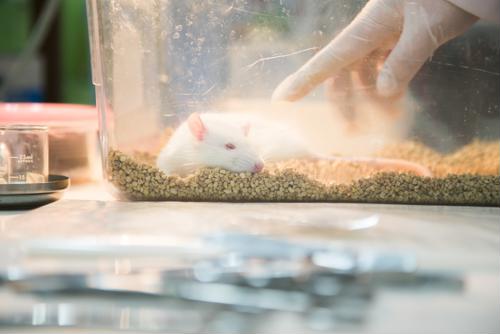The Environmental Protection Agency recently pledged to reduce "requests for and funding of" chemical testing studies conducted on mammals by 30% by 2025, according to U.S. News and World Report. EPA Administrator Andrew Wheeler spoke and signed a directive in September 2019 calling for the reductions, which he said are a part of a larger plan to completely forgo the practice historically decried by animal rights activists by the year 2035. Animal tests conducted after that date would, in turn, have to be approved by the sitting EPA administrator.
According to an Environmental Health News op-ed, Wheeler further directed his team to "identify tangible steps" to ensure that the agency's mission (including approvals and research) "remain fully protective of human health and the environment." Among those who praised the directive were members of the animal rights advocacy group People for the Ethical Treatment of Animals, which called it "groundbreaking" – a contrast to the criticism from other environmentalists in which the EPA was alleged to be intentionally "blinding itself" to human safety.
"We are really excited as this has been something we've wanted for quite some time," said Humane Society President and CEO Kitty Block regarding the directive, quoted in the New York Times.
Public health groups have spoken out against the directive and its overall 2035 end goal, claiming that it would not only make chemicals more difficult to regulate, but would also put human safety at further risk due to what they characterized as "already inadequate testing methods." EHN argued that new methods aside from animal testing could save resources related to money and time during chemical screenings, yet would "reduce an already inadequate protection for human health" unless the EPA can find new methods to evaluate the effects of chemicals on human health.
Among other suggestions, the EHN op-ed further argued that cellular-and-computer-based methods cannot replicate any of the effects that "occur in the whole animal," and as such, chemical testing would be necessary. Some opponents, including the Natural Resources Defense Council, pointed to Wheeler's past work as a coal industry lobbyist and claimed that the directive further proved the existence of the Trump Administration's EPA's alleged "coziness" with fossil fuel and chemical companies. {I edited this to be a bit more clear as to you stating EHN's opinion, keep it as it is now}
A memo acquired in the summer of 2019 by The Intercept shows that the EPA administrator had spoken with multiple chemical companies regarding the elimination of animal testing, which is more time-consuming than other methods. The Intercept claimed that the elimination of animal testing could, in turn, eliminate the need for toxic chemicals regulations in general.
On the subject of the memo, Wheeler told reporters that he was not lobbied by a "single chemical company," and was not sure if others in the EPA had spoken with any chemical businesses.
Senior NRDC scientist Jennifer Sass specifically blamed the White House for the new directive. "Once again, the Trump administration appears to be working on behalf of the chemical industry and not the public," Sass stated, according to the Huffington Post.
"They have 16 years to get on board, and I hope they do," Wheeler said in response to the criticism.























